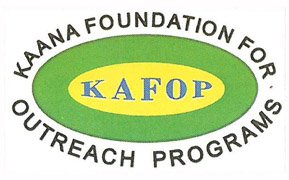HIV Program.

HIV Prevention Program (SDG 3)
The 2020 Uganda Population-based HIV Impact Assessment (UPHIA) report indicates that the prevalence of HIV/Aids among adults aged 15 to 49 years declined from six per cent in 2016 to 5.5 per cent as of 2020. The prevalence of HIV/AIDS among adults of reproductive age 15 to 49 years was 5.5 per cent (7.1 per cent among women and 3.8 per cent among men), reflecting a slight decrease from six per cent in 2016-17 (7.5 per cent among women and 4.3 per cent among men).
The UPHIA 2020 survey sample of adults aged 15 years and older put HIV/AIDS prevalence at 5.8 per cent (7.2 per cent among women and 4.3 per cent among men), corresponding to approximately 1.3 Million adults living with HIV in Uganda. The prevalence of HIV/AIDS in adults 15 years and above was higher in urban areas (7.1 per cent) than in rural areas (5.2 percent). The HIV epidemic continues to pose a serious public health threat in Uganda, particularly among important populations like young women, homosexual males, sex workers, and People who Inject drugs.
KAFOP ran a five-year project from 2010 to 2015 with funding from HIVOS, a Dutch donor, to increase access to healthcare for 500 female sex workers in the seven districts of the Rwenzori region, including Greater Kabarole, Kasese, Kyenjojo, Kamwenge, Ntoroko, Kyegegwa, and Bundibugyo. The project primarily promoted the health rights of FSWs, HIV prevention, and entrepreneurial training for them. As a result, 50 FSWs were educated as peer educators, 350 received entrepreneurship training, 150 started small businesses to supplement their income, and two groups of KPs in Kabarole were assisted in forming Village Saving and Loan Associations (VSLAs).
With assistance from Baylor Uganda, KAFOP carried out a 12-month initiative in 2017. We were intended to do referrals and linkages to the institutions for further medical and non-medical services, update the registers, conduct OVC evaluations, identification, and enrolments, as well as report to the Districts. We were also expected to provide a variety of social services and fundamental clinical treatments to referred clients.
2018-2019: Consultancy services on HIV/AIDS, Gender, OVC, Occupational Health, and Safety were offered to the National Uganda Roads Authority through China Wu-Yi Company Limited in connection with civil works for the renovation of the 50-kilometer Kyenjojo-Fort-Portal road. Within the project region, the effort addressed villages located 5 km from the road, the construction personnel, schools, religious and cultural leaders, and local officials. Through workshops, gatherings, health fairs, making recommendations for more support, and offering HIV services and treatment, project areas were made more aware of.
With funding from Baylor Uganda, a project titled “Accelerating Epidemic Control (ACE-FORT) among Key Population”—female sex workers, MSM, people who inject drugs (PWIDs), and transgender people—was implemented between 2019 and 2020. Key initiatives included HIV testing and treatment, STI screening and treatment, ART adherence and appointment tracking, Viral load monitoring, non-suppressed KPs, peer-led outreach initiatives, assisting peer leaders and HIVST distributors in mobilizing and following up with community or sexual partners for HTS (Recency, HIVST, and Appointed Partner Notification), linking KP re-testing to ART or PrEP, and following up on HIV/TB, OVC, Non-suppressed.
KAFOP is currently implementing a five-year project titled “Accelerating Epidemic Control in Fort Portal region” with funding from Baylor Uganda under a Result Based Financing Model (RBF). The project has two components: i) Orphans and Other Vulnerable Children (OVC), and ii) Community Facility Framework. Target beneficiaries in 14 administrative units of Fort-Portal City, Kabarole, and Bunyangabu Districts; include People Living with HIV (PLHIV) and children affected and infected by HIV/AIDS. Currently, KAFOP is providing services to 6,798 individuals from over 1,700 families and more than 3,396 PLHIV. The project’s participants were selected in accordance with PEPFAR requirements, which included: i) a 75% proportion of CLHIV-positive children and youth under the age of 18 living with HIV, ii) Infants with HIV Exposure (HEI) 13%, iii) Children of HIV Positive caregivers and Sexually Abused Adolescent (SAA) 2%, iv) Children of Female Sex Workers 10%.
With support from Global 21st Engineering Company Limited we are provide consultancy and awareness services for HIV/AIDS, Gender , Occupational Health and Safety in areas along Mugoma, Water Supply/ Kahungabunyonyi and Mill Lane roads in Fort-Portal which are under construction during construction works for selected infrastructure sub projects in cluster 7 – Fort-Portal city.

